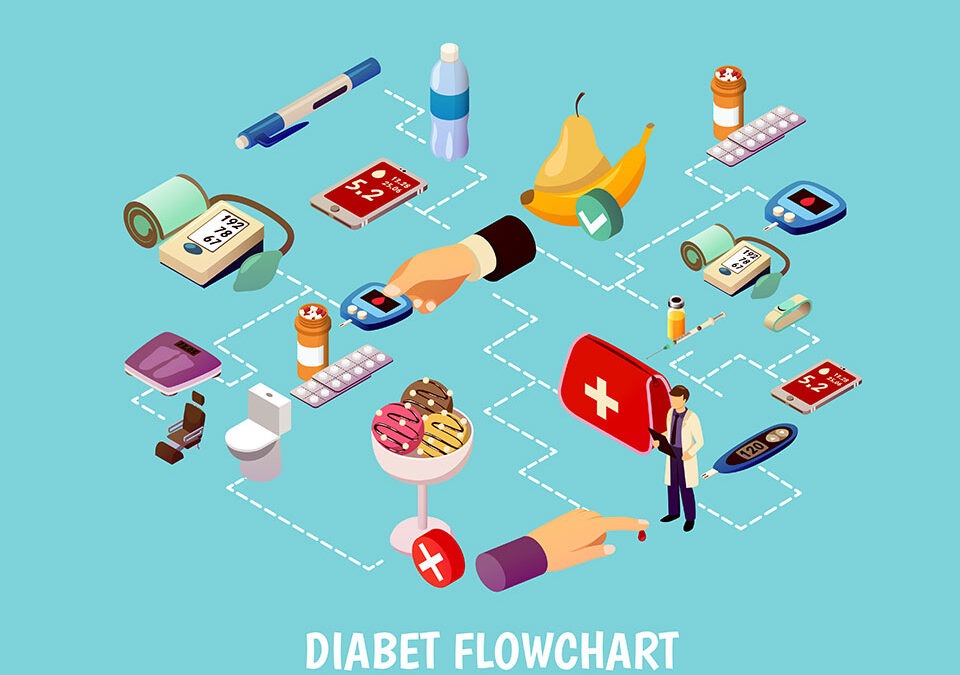
Why The Keto Diet Isn’t Meant For Everyone With Diabetes
November 23, 2022
The Importance of Dietary Fibre in Diabetes Prevention and Management
November 23, 2022
If you are living with diabetes since a long duration, you may be a pro when it comes to managing blood sugar levels. You may realise that it is in your body’s best interest to limit intake of carbs, get physically active, check other meds for possible drug interactions, and abstaining from alcohol on an empty stomach. Thus, you have a diabetes treatment plan in place.
By living with diabetes, you may be quite familiar as to how your daily activities impact your blood sugar levels. Therefore, if you see a major shift in your A1C levels without finding an explanation for it, you could end up being surprised or even frustrated.
On some occasions, things beyond your thoughts can lead to blood sugar spikes. Learning to recognise behaviours as well as circumstances that you do not generally associate with A1C levels normal may help you in preventing severe health concerns in the present as well as immediate future.
- Alterations to Your Supplement Regimen
Certain supplements, vitamins, and minerals available in the market are good for your health when it comes to diabetes treatment. That said, some nutritional supplements can have an impact on your A1C test, leading to inaccurate test results.
For instance, according to research conducted in 2013, elevated levels of vitamin E can falsely elevate A1C levels.
Conversely, folic acid and vitamin B12 can falsely lower them. In addition, vitamin C can do both, based on whether your doctor measures your A1C with electrophoresis (which can lead to a false increase) or chromatography (which can eventually return a false decrease).
It is vital to note that certain prescription medications (such as interferon alfa-2b and ribavirin), too, can have an impact on the A1C test for diabetes.
- Significant Life Events
Chronic stress can lead to an increase in blood sugar levels as well as insulin resistance.
You might be able to recognise when you are under immense stress and know that it increases the levels of certain hormones, which can raise blood sugar levels. That said, you may not realise the fact that even positive life events can trigger stress.
You may not find a correlation between happy, exciting times in your life and an increase in A1C levels, but there appears to be a connection. Some of the best life changes (such as a promotion at work, purchase of your dream car, or a new romance) can lead to an overall increase in hormones that are associated with stress.
It is crucial to practice selfcare, irrespective of whether the major life change is good or bad. The ADA (American Diabetes Association) suggests finding time for stress-relieving practices such as exercise and certain breathing techniques in your diabetes treatment regimen.
- Iron-Deficiency Anaemia
Lack of sufficient iron in your diet can cause iron-deficiency anaemia, which is characterised by fatigue, weakness, paler skin than normal, and shortness of breath.
A 2018 study demonstrated that iron deficiency is successfully associated with increase in A1C levels in those with diabetes.
Experts estimate that around 10-30% of individuals with diabetes develop anaemia, and nearly one-third of individuals with anaemia have iron deficiency.
Vegetarians and vegans, women with heavy menstrual cycles, and regular blood donors are at a higher risk of developing iron-deficiency anaemia.
- Insufficient Sleep
Lack of sleep can have a major toll on numerous aspects of your health, causing problems such as mood changes, daytime sleepiness, trouble in concentrating, and fatigue, among others.
Moreover, a 2015 study found a link between sleep disturbances and higher levels of A1C and impaired blood glucose levels.
In particular, one small 2015 study comprising individuals with diabetes and untreated sleep apnoea showed that for every one-hour reduction in sleep duration there was a 4.8% increase in A1C levels.
Setting a precise and regular sleep schedule, abstaining from caffeine later in the day, and limiting screen time prior to going to bed may ensure that you obtain sufficient sleep every night.
- Medications
Several medications can affect A1C levels by altering the secretion of insulin, reducing insulin sensitivity, and increasing production of blood sugar.
Some medications that can increase blood sugar levels are:
- Steroids
- Aspirin
- Opioids
- Antidepressants
- Anti-anxiety pills
- Cholesterol-lowering drugs
- Medications to maintain blood pressure
- Anti-seizure medications
Certain supplements and medications can lead to false, low A1C levels. These include vitamin E, vitamin C, antivirals, and some medications to combat cancer.
To Sum It Up:
Under several circumstances, you can successfully manage your A1C levels by consuming a balanced diet, exercising on a regular basis, intaking the right medications, and paying close attention to your emotional wellbeing.
When your best efforts do not help you hit your A1C goal, look deeper because several other factors can throw your blood glucose levels out of balance, such as alterations to your intake of supplements, major life events, iron-deficiency anaemia, lack of sleep, and intake of certain medications.
Work in association with your doctor as well as registered dietitian to successfully identify potential barriers to lower A1C levels and come up changes that you can execute to improve your health.




